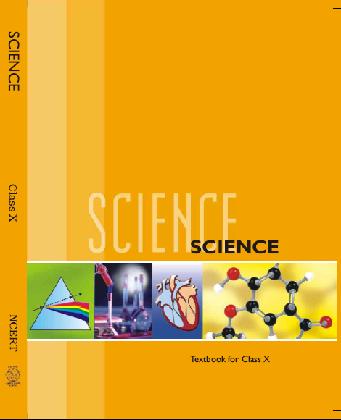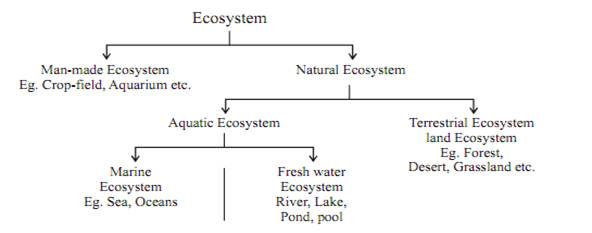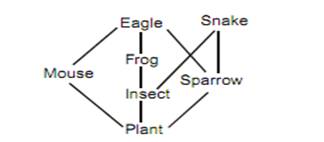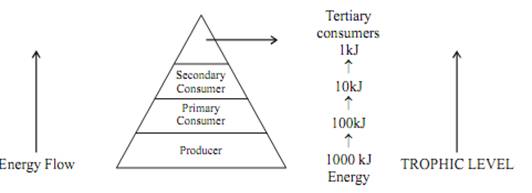
myCBSEguide App
Download the app to get CBSE Sample Papers 2025-26, NCERT Solutions (Revised), Most Important Questions, Previous Year Question Bank, Mock Tests, and Detailed Notes.
Install NowCBSE class 10 Science Chapter 15 Our Environment notes in PDF are available for free download in myCBSEguide mobile app. The best app for CBSE students now provides Our Environment class 10 Notes latest chapter wise notes for quick preparation of CBSE board exams and school based annual examinations. Class 10 Science notes on Chapter 15 Our Environment are also available for download in CBSE Guide website.
CBSE Guide Our Environment class 10 Notes
CBSE guide notes are the comprehensive notes which covers the latest syllabus of CBSE and NCERT. It includes all the topics given in NCERT class 10 Science text book. Users can download CBSE guide quick revision notes from myCBSEguide mobile app and my CBSE guide website.
10 Science notes Chapter 15 Our Environment
Download CBSE class 10th revision notes for Chapter 15 Our Environment in PDF format for free. Download revision notes for Our Environment class 10 Notes and score high in exams. These are the Our Environment class 10 Notes prepared by team of expert teachers. The revision notes help you revise the whole chapter in minutes. Revising notes in exam days is on of the best tips recommended by teachers during exam days.
Revision Notes for Class 10 Science Download as PDF

CBSE Class 10 Science Revision Notes Chapter 15 Our Environment
- Environment means everything which surrounds us. It may include living (biotic) and non-living (abiotic) components.
- Biotic : Plants and animals. Abiotic : Air, water etc.
- Environment affect the life and development of an organism in its natural habitat & vice a versa.
- Substances that can be decomposed by the action of micro-organism like bacteria are called bio-degredable. E.g. organic wastes.
- Substances which cannot be decomposed by the action of microorganisms are called non-biodegradable.
- Example of biodegradable wastes : cattle dung, cotton, jute, paper, fruit and vegetable peels, leaves etc.
- Examples of non-biodegradable wastes : plastics, polythene bags, synthetic fibres, metals, radioactive wastes.
ECO SYSTEM & ITS COMPONENT
- All the interacting living organisms in an area together with non living components form an ecosystem. So an ecosystem consists of both biotic(living creatures) and abiotic components like temperature, rainfall, wind, soil etc.

- All living organisms are classified on the basis nutrition.
I. Producers : All green plants, blue green algae can produce their food (Sugar & starch) from inorganic substance using light energy (Photosynthesis).
II. Consumers : Include organisms which depend on the producers either directly or indirectly for their sustenance. Consumers depend on others for food.

III. Decomposeres : Fungi & Bacterias which break down(decompose) the dead plant,
animals complex compounds into the simpler one. Thus decomposeres help in the replenishment
A 3- Step Food Chain
- Food Chain : It is the sequence of living organisms in which one organism consumes another organism for energy. It is unidirectional(single directional).

- In a food chain, various steps where transfer of energy takes place is called a trophic level.
- The green plants capture 1% of sun’s energy.
- The flow of energy is unidirectional in a food chain.
- There is gradual decrease in the amount of energy from one trophic level to next trophic level in a food chain.

- 10 Percent Law : The energy available at each successive trophic levelis 10% of the previous level.
So only 10% of Energy is transferred to next trophic level while 90%of energy is used by present trophic level in its life processes.
- The concentration of harmful chemical increases with every next trophic level in a food chain. It is called Bio-magnification
- Maximum concentration of such chemicals get accumulated in human bodies. Since humans occupy the top level in any food chain.
ENVIRONMENTAL PROBLEMS
- Changes in environment affect us and our activities change the environment around us. Environmental problems caused by humans:
(a) depletion of the Ozone Layer and waste disposal.
(b) pollution due to mismanagement of waste disposal.
I. Depletion of Ozone Layer
- (O3) layer is largely found in the stratosphere which is a part of our atmosphere from 12 km – 50 km above sea level.
- Ozone is a deadly poison at the ground level.
- Ozone is formed as a result of a following photochemical reaction.
- Ozone layer is a protective blanket around earth which absorbs most of the harmful U.V. (Ultraviolet) radiation of the Sun, thus protecting the living beings of the earth from health hazards like skin cancer, cataract in eyes, weaken immune system, destruction of plants etc.
- The decline of Ozone layer thickness in Antartica was first observed in 1985 and was termed as OZONE HOLE.
Reason of Ozone Depletion
Excessive use of CFCs (Chloro Flouro Carbon) a synthetic, inert chemical E.g. Freon which are used as refrigerants and in fire extinguishers, caused Ozone depletion in the upper atmosphere. A single chlorine atom can destroys 1,00,000 Ozone molecules. U.N.E.P. (United Nation Environment Programme)did an excellent job in forging an agreement to freeze CFC production at 1986 levels (KYOTO Protocol) by all countries.
Garbage Disposal
Industrialization and rise in demand of consumer goods have created a major problem in the form of wastes/garbage accumulation and its disposal specially in urban area.
The different methods of solid wastes disposal commonly used around
the world are.
- Open dumping : A conventional method in which solid wastes dumped in selected areas of a town. It actually cause pollution
- Land fillings : Wastes are dumped in low living area and are compacted by rolling with bulldozers
- Composting : Organic wastes are filled into a compost pit (2m × 1m× 1m). It is then covered with a thin layer of soil. After about three months the same garbage filled inside the pit changes into organic manure.
- Recycling : The solid wastes is broken down into its constituent simpler materials. These materials are then used to make new items. Even non-bio degradable solid wastes like plastic, metal can be recycled.
- Reuse : A very simple conventional technique of using an item again& again. For e.g. paper can be reused for making envelops etc.
Our Environment class 10 Notes
- CBSE Revision notes (PDF Download) Free
- Revision notes for Class 10 Science PDF
- CBSE Revision notes Class 10 Science – CBSE
- CBSE Revisions notes and Key Points Class 10 Science
- Summary of the NCERT books all chapters in Science class 10
- Short notes for CBSE class 10th Science
- Key notes and chapter summary of Science class 10
- Quick revision notes for CBSE board exams
CBSE Class 10 Revision Notes and Key Points
CBSE quick revision note for Class 10 Science, Chemistry, Maths, Biology and other subject are very helpful to revise the whole syllabus during exam days. The revision notes covers all important formulas and concepts given in the chapter. Even if you wish to have an overview of a chapter, quick revision notes are here to do if for you. These notes will certainly save your time during stressful exam days.
To download Our Environment class 10 Notes, sample paper for class 10 Mathematics, Social Science, Science, English Communicative; do check myCBSEguide app or website. myCBSEguide provides sample papers with solution, test papers for chapter-wise practice, NCERT solutions, NCERT Exemplar solutions, quick revision notes for ready reference, CBSE guess papers and CBSE important question papers. Sample Paper all are made available through the best app for CBSE students and myCBSEguide website.
- Chemical Reactions and Equations class 10 Notes Science
- Acids Bases and Salts class 10 Notes Science
- Metals and Non-metals class 10 Notes Science
- Carbon and its Compounds class 10 Notes Science
- Periodic Classification of Elements class 10 Notes Science
- Life Processes class 10 Notes Science
- Control and Coordination class 10 Notes Science
- How do Organisms Reproduce class 10 Notes Science
- Heredity and Evolution class 10 Notes Science
- Light Reflection and Refraction class 10 Notes Science
- Human Eye and Colourful World class 10 Notes Science
- Electricity class 10 Notes Science
- Magnetic Effects of Electric Current class 10 Notes Science
- Sources of Energy Current class 10 Notes Science
- Management of Natural Resources class 10 Notes Science

Test Generator
Create question paper PDF and online tests with your own name & logo in minutes.
Create Now
Learn8 App
Practice unlimited questions for Entrance tests & government job exams at ₹99 only
Install Now